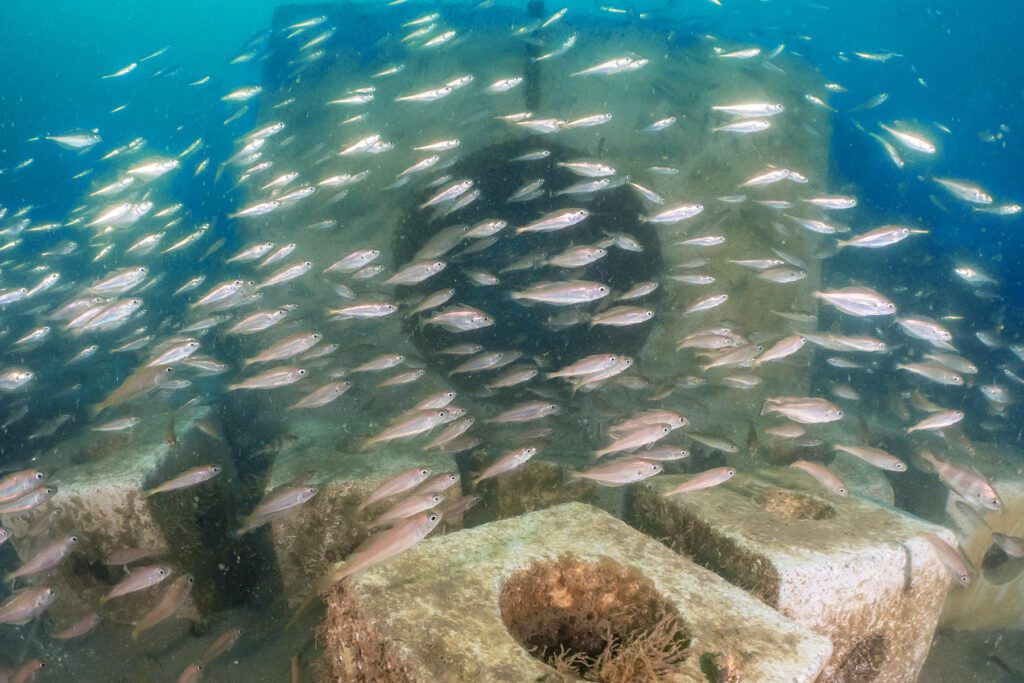In 2022, DEFRA launched a consultation on the principles of Marine Net Gain (MNG). The consultation considered MNG as part of an appropriate regime for putting the marine environment into ‘recovery’ – the sort of language that leaves little doubt about the state of our waters. The consultation proposed that MNG is mandated for certain developments, or infrastructure forming part of development, below the Low Water Mark.
The ambition is to secure “…the responsible and sustainable growth of marine industries”, putting biodiversity at its core whilst recognising the wider, additional environmental services. The proposals in the consultation set out that MNG would operate alongside existing planning policy and practice, and provide the tools for offsetting impacts from development that cannot be avoided, minimised or mitigated (the mitigation hierarchy).
The Aims of the Consultation
The consultation recorded that MNG will:
- “secure positive outcomes for the environment by contributing to halting and reversing the longer-term trend of biodiversity decline through restoration and creation of healthy and high-quality marine and coastal habitats, and protection of species”
- “deliver lasting improvements, contributing to ocean recovery, supporting efforts in climate change mitigation, resilience and adaptation”
- “enable responsible and sustainable growth of marine industries and development activities, recognising their essential contribution to meeting the UK government’s climate change commitments, whilst ensuring the protection of our marine environment”
- “define strategic objectives and goals, increasing the potential for relatively small interventions to make a more significant collective contribution to improvements in the overall status of the marine environment”.
MNG Principles
The consultation put forward 9 Principles for MNG. It is intended that those principles will inform an assessment framework, adopting a mandatory “nature first approach” that will be proportionate and appropriate to the scale and type of development. It is worth highlighting several of these principles.
Principle 1 – “Marine net gain will measure impacts on habitats and species.”
A focus on species as well as habitats reflects that the marine environment is highly dynamic and the species highly mobile.
Principle 2 – “Marine net gain will seek to incorporate environmental benefits underpinned by biodiversity”.
Recognising that biodiversity enhancement and habitat restoration can also deliver additional benefits or ecosystem services, e.g. water purification, coastal protection and carbon sequestration.
Principle 5 – “Marine net gain requirements will be proportionate and appropriate to the scale and type of development”
The consultation highlights the challenges of delivering a fully comprehensive framework and the delay that this will have on establishing a MNG regime. To tackle this (initially, at least) a contribution-based approach is proposed which would “operate like a levy on marine development” and be used to fund priority environmental enhancements or restoration projects.
Principle 8 – “Marine net gain will incentivise the delivery of strategic interventions in addition to meaningful site-based interventions.”
DEFRA anticipates that a directory of designated strategic interventions informed by the MNG principles will be established. The consultation set out that interventions could also incorporate non-statutory opportunities and referred to the Environment Agency’s Restoring Seagrass Meadows, Salt March and Oyster Reef (ReMeMaRe) project.
The Consultation Responses
Following a Freedom of Information Request, in January 2024, the full responses to the consultation were made public. There was broad agreement with the introduction of MNG and the principles proposed. A few themes from the responses included:
- concerns around increasing levels of uncertainty and an increased regulatory burden without addressing the main threats facing the marine environment
- the practical challenges of assessing and monitoring species as well as habitats
- concerns regarding how to develop a robust and appropriate metric to quantify residual impacts of marine development
- calls for a simplistic approach to deliver marine restoration, recovery and enhancement whilst avoiding additional layers of complexity
- questions over whether developments which deliver low carbon energy should have their wider climate change benefits assessed as part of an “environmental net gain” approach
- the need to address onshore pollution which significantly impacts and undermines marine restoration efforts and in particular, intensive agricultural
- the need to recognise marine activities that have significant and long-lasting impacts on the marine environment but which are likely to fall outside of the scope of MNG, including fisheries and shipping
- the need to consider a wider environmental net gain approach and in particular the impact on the British Energy Security Strategy to deliver 50GW of offshore wind by 2050.
The Future Fisheries Alliance (WWF, RSPB and the Marine Conservation Society) advocated for MNG to be integrated into a “holistic vision for our seas”. The Alliance points out that the fishing industry is a key beneficiary of MNG and stated in their response:
“Continuing to consider fisheries and aquaculture in a silo, removed from other marine industries and separated further by its lack of inclusion in a potential marine net gain system prevents its integration in a strategic vision for our seas, which considers all impacts, and ultimately limits Government’s ability to consider joint solutions to remove pressures on the marine environment.”
The Government’s Plans for MNG
As a result of the consultation, the UK Government has confirmed that it will (amongst other things):
- include impacts on both habitats and species within the MNG assessment framework
- recognise wider environmental benefits when assessing MNG interventions but only where they are underpinned by biodiversity enhancement
- explore a selection of options for a contributions based approach alongside work to explore the applicability of biodiversity metrics to the marine environment
- work with stakeholders to develop a process for assessing MNG and a basis for contribution, taking into account the level of impact
- not include fisheries within the scope of MNG requirements.
Next for MNG
The Government has confirmed that it will now commission the evidence needed to take the proposals forward. Stakeholders will be invited to contribute to the policy development.
Going forward, a robust assessment framework is to be developed adopting a contributions-based approach and a “suitable simple metric” to assess impacts and interventions to the marine environment.






